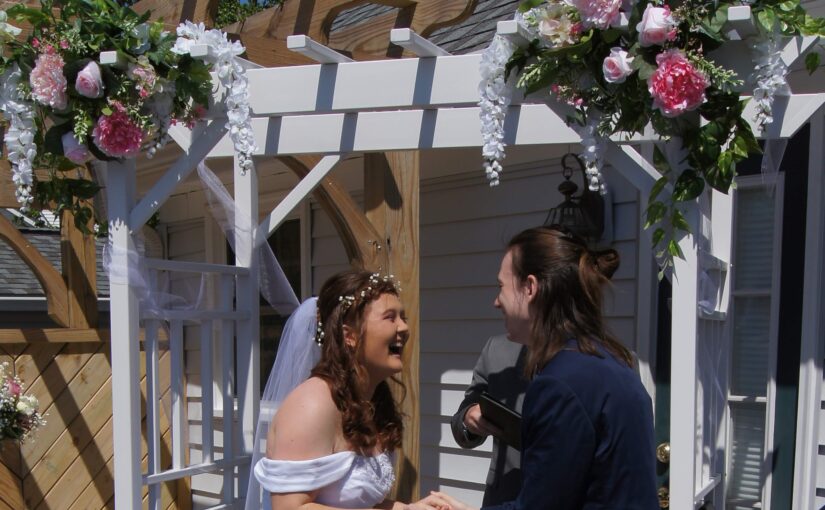Jaron and Christine just celebrated their first year of marriage. That made me reminisce about our first year of marriage, and what Lianne and I have learned over the course of 27 years. Idioms can be useful. For example, “Happy wife, happy life.” I admit to feeling kind of left out though, what does a happy husband get you? Another pithy saying is, “Marriage is a marathon, not a sprint.” Well, marathons are miserable. Similar to marriage, when I ran a half marathon all I could think was, “When will this be over?” 🙂
Of course, that’s not what the saying means. The idea is that marriage is something you have to commit to long-term, like a marathon. My first piece of advice is to determine from the start that you are dedicated to making the relationship work. Divorce is simply not an option. This is why my Indian friends with their arranged marriages have such low divorce rates. They expect to stay married. A lack of commitment is one of the leading causes of divorce.
Secondly, get your finances in order. Money problems lead to stress and tension, particularly when there are differing views on how to spend and save. If you are both spenders, God help you. 🙂 Set up a budget and if you need it, seek advice on how to save. If you are both savers, loosen up and have some fun every once in a while. If you are a mix, recognize the positives of both approaches and agree on a way forward. Both of you need to be invested in your financial decisions.
Which ties in to my third point. Marriage is an equal partnership. One spouse shouldn’t be in charge of all the decisions, neither should one partner give up and give in to what the other wants. That’s not a partnership, that’s a dictatorship. As couples we don’t have to discuss every choice in depth, but there should be some understanding about when a major decision needs to be agreed upon. For example, early in our marriage we decided to touch base whenever we had an expense over $100. When we come into agreement on major decisions we know that we are in it together. It also prevents any blame down the road on those rare occasions when things don’t turn out the way we expected. “That son was your idea, you deal with him.”
What is one major requirement for agreeing on something? You have to talk about it! Communication is critically important, but all communication isn’t created equal. Some of us aren’t good at it, while others are too good. I think that the key is to start from an attitude of love. When something bothers you, it is important to communicate it but to do so in a non-critical, loving way. The other half of that equation is that this requires the ability to receive criticism in a loving way as well. It is even more important to communicate the positives and this is so much more than simply saying the right words. Humans express our feelings with words, actions, touch, and smiles. Show your appreciation with more than just words. What does your spouse value? What is their love language? It could be words of affirmation, but it could also be acts of service or physical touch. It may not be natural for you but finding out what is natural for your spouse is key. Do that. To show my love for Lianne, I know she enjoys catcalls and a slap on the butt, for example, so I do that often. 😀 😀

My last piece of advice is to quit being selfish. Marriage and parenthood are the ultimate tests of selfless love. I give myself a ‘C’ on this one. The good thing about my grade is that we’re doing fine as a couple, but if I can improve to a ‘B’ or an ‘A’ we’ll be really rockin’. I have something to work on to make our relationship even better. Most of the times that we’ve made each other angry it’s been a result of selfishness. Our tendency as humans is to think of ourselves first, so we have to fight against that natural instinct and put our families above ourselves. I wanted to watch NCAA basketball non-stop during March Madness, and I did. So that’s an example of what NOT to do. Be better Bryan!
My goal in our relationship should be to make Lianne happy. I love her. That’s what I want for her. “Happy wife, happy life.” In the same way, it is what she wants for me. If we are both consistently trying to make each other happy, how can we fail? I still haven’t had any luck figuring out something that rhymes with husband though, so I’m settling for alliteration instead.
“Happy husband, happy home.”





